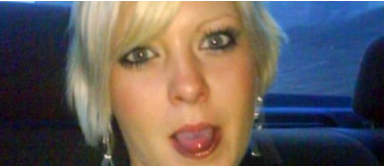
20 Nov “Deeply inadequate” prison procedures contributed to death of Jessica Whitchurch
Before HM Coroner Maria Voisin
Avon Coroner’s Court. The Courthouse, Old Weston Road, North Somerset, BS48 1UL
5 November 2018 – 19 November 2018
The inquest into the self-inflicted death of Jessica (Jess) Whitchurch in HMP Eastwood Park has concluded, with the jury returning a damning conclusion identifying multiple failures that contributed to her death following a fatal ligature on 18 May 2016. She died in hospital two days later on 20 May. Jess was one of 12 self-inflicted deaths in women’s prisons in 2016, the highest number on record.
Jess was 31 years old and from Nailsea near Bristol. She was from a close-knit family who described her as “the most caring person we have been lucky enough to know”, a fun and optimistic person who loved life but struggled with her demons. Jess had a history of mental ill health and addiction as well as repeated self-harm and suicidality. She was openly bullied whilst in HMP Eastwood Park. The jury found that this bullying by other prisoners – described by a mental health worker in the prison as a “campaign” against Jess which was “viciously undermining” of her – had exacerbated her inherent vulnerability. Bullying in her unit was also a concern in relation to another death in 2016.
Contrary to mandatory national guidance there was no healthcare involvement in the prison suicide and self-harm (ACCT) procedures, under which Jess had to be managed repeatedly during her sentence. This, an expert witness told the court, “significantly compromised” the management of Jess’ risk to herself.
At around 12.19 on 18 May 2016, Jess was found in a state of distress with ligatures around her neck in her cell. Prison staff decided to re-open ACCT procedures and put Jess on twice hourly observations over the lunchtime period. The jury heard deeply troubling evidence about bullying directed at Jess over that period, including goading by other prisoners to ligature herself again.
The Coroner’s expert told the jury that the last check on Jess when she was alive had been “inadequate” and that she should have been subject to continuous observation until her condition stabilised. Less than two hours after the first ligatures that day, at 13.28, Jess was found unconscious with ligatures around her neck. Her heart had stopped and she could not be saved. She died in hospital two days later. Jess was an organ donor and her family are immensely proud that after her death Jess donated her kidneys.
In relation to the ACCT re-opened after the 12.19 ligature incident the jury concluded that “It is our strong view that this process was deeply inadequate”. They also found that the following contributed to Jess’ death:
- A failure by prison officers to adequate communicate with each other and with healthcare staff after the 12.19 ligature incident;
- An “insufficient observational effort by prison officers during Jessica’s final hour in her cell”;
- Bullying and goading at the time of the fatal ligaturing which “went unchallenged” by staff;
- Organisational failings in prison service staffing.
Emma Gardiner and Beth Whitchurch, Jess’ sisters said: “After a painful two and a half year wait and seven days of extremely distressing evidence the jury has finally confirmed what we have known all along, that Jess’ care in the hours before her death was inadequate and that her death was avoidable.
All we can hope now is that lessons can be learnt so that the lives of other vulnerable women can be spared, and no family has to suffer as we have. We would like to thank the jury for their hard work and careful consideration of the evidence”
Selen Cavcav, caseworker at INQUEST said:“A jury member at this inquest asked the pertinent question: ‘Given her presentation, should Jessica have been incarcerated in prison at all?’ This critical conclusion clearly answers that. This country criminalises women for their own suffering, imprisoning them in places that cannot possibly end the cycle of harm or keep them safe.
Jess died in the year which saw the highest number of deaths in women’s prisons on record. Preventable deaths like hers continue, yet the current action from the government is insufficient. What is urgently needed is focused work across health, social care and justice departments to dismantle failing women’s prisons and invest in specialist services for women in the community.”
The family is represented by INQUEST Lawyers Group members Clare Richardson of Deighton Pierce Glynn Solicitors and Sam Jacobs from Doughty Street Chambers.
